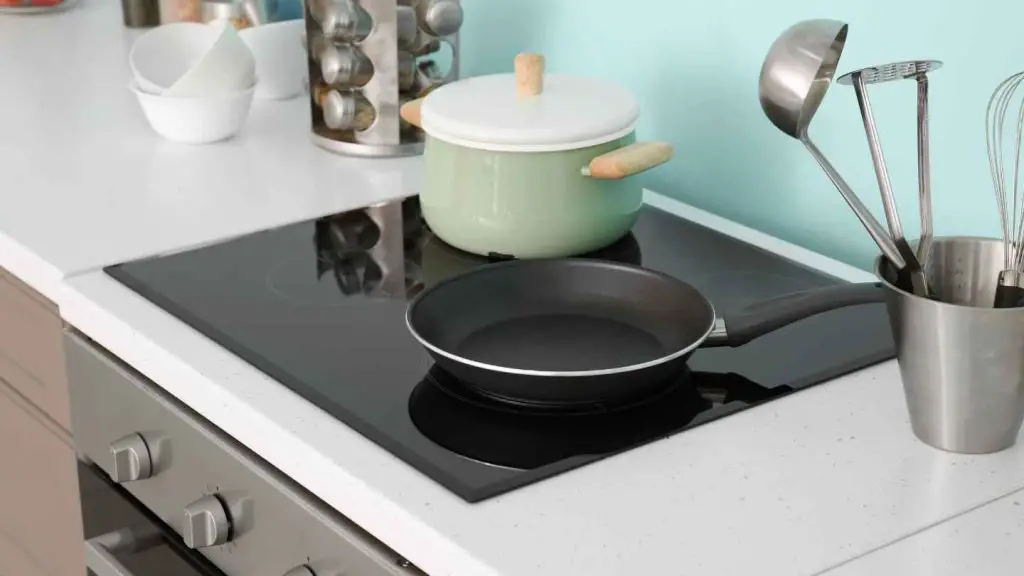When it comes to the culinary world, the term “kosher” holds significant importance for those who follow Jewish dietary laws. From the ingredients used to the cookware employed, every aspect of the cooking process must adhere to these religious guidelines.
One crucial element in maintaining Jewish standards is the use of a kosher oven. In this comprehensive guide, we will explore what a kosher oven is, why it is necessary, how to kosher an oven and the key differences between a kosher and a regular oven.
Origin of the Word “Kosher”
Before diving into the intricacies of a kosher oven, it is essential to understand the origin of the term “kosher” itself. The word “kosher” comes from Hebrew and means “fit” or “proper.” In the context of food, it refers to the dietary laws followed by Jewish people, as outlined in the Torah (the Jewish holy book). These laws dictate what foods are permissible and how those foods must be prepared, cooked, and consumed.
What Makes an Oven Kosher?
So what is a kosher oven? A kosher oven is one that complies with the guidelines set forth in Jewish dietary laws. The primary concern when it comes to a kosher oven is the prevention of cross-contamination. To ensure this, a kosher oven must meet the following criteria:
- Separation of Meat and Dairy: The kosher kitchen features separate areas and utensils for the preparation and cooking of meat and dairy products. In the case of a kosher oven, it must only be used for either meat or dairy dishes. Mixing the two categories is strictly prohibited.
- No Cross-Contamination: To maintain the separation between meat and dairy, it is crucial to prevent any cross-contamination. This means ensuring that no residue or remnants of meat or dairy are left in the oven after each use.
- Koshering the Oven: Before using an oven for kosher cooking, it must be kosher (made kosher). Koshering involves a process of cleaning and purifying the oven to remove any traces of non-kosher food. We will delve deeper into this process later in the article.
Related: where in the refrigerator should you store raw meat (5 proven answers inside)
Why Does an Oven Need to Be Kosher?
The need for a kosher oven arises from the obligation to follow Jewish dietary laws. For those who observe kosher practices, it is not sufficient to use kosher ingredients alone; the cookware and cooking surfaces must also be kosher. This ensures that the integrity of the kosher meal is upheld from start to finish.
By using a kosher oven, individuals of Jewish descent and practice can have peace of mind knowing that their food is prepared according to their religious beliefs. It adds an extra layer of assurance that the meals are prepared in a manner that aligns with their faith.
How to Kosher an Oven
Koshering your home oven is a meticulous process that requires attention to detail. Here is a step-by-step guide on how to kosher an oven:
- Clean the Oven: Start by thoroughly cleaning the oven to remove any food residue or debris. This can be done by using an oven cleaner or a mixture of baking soda and water. Pay close attention to all the nooks and crannies to ensure a comprehensive cleaning.
- Wait 24 Hours: After cleaning the oven, wait for a period of 24 hours before proceeding. This waiting period is necessary to ensure that any absorbed flavors or residue from non-kosher foods are eliminated.
- Heat the Oven: Set the oven to its highest temperature and let it heat for at least one hour. This intense heat helps to burn off any remaining non-kosher residue. During this process, it is recommended to open windows or use proper ventilation to avoid any unpleasant odors.
- Line the Oven: Once the oven has cooled down, cover the cooking surfaces with aluminum foil or use a kosher oven liner to create a barrier between the food and the oven. This will help maintain the kosher status and prevent cross-contamination.
- Label and Dedicate: It is vital to clearly label the oven as either “meat” or “dairy” to avoid any confusion. Additionally, dedicate the oven to its designated category and ensure that only kosher ingredients and cookware are used accordingly.
Difference Between a Kosher Oven and a Regular Oven
The main distinction between a kosher oven and a regular oven lies in the adherence to dietary laws. While a regular oven holds no restrictions on what can be cooked, a kosher oven must strictly follow the guidelines mentioned earlier. Here are some key differences:
- Separation of Meat and Dairy: In a kosher oven, meat and dairy products cannot be cooked or prepared together. This separation is not a concern in a regular oven.
- Cleaning Requirements: A kosher oven requires thorough cleaning to remove any non-kosher residue before it can be used for kosher cooking. Regular ovens do not have these specific cleaning requirements.
- Cross-Contamination Prevention: To maintain a kosher oven, it is essential to prevent any cross-contamination between meat and dairy. Regular ovens do not adhere to these restrictions.
Why Use Kosher in Cooking?
Aside from the religious aspects, there are practical reasons why people choose to use kosher practices in their cooking. Some of these reasons include:
- Food Safety: The separation of meat and dairy, along with the meticulous cleaning and koshering process, helps ensure food safety. By following these guidelines, the risk of cross-contamination and foodborne illnesses is minimized.
- Quality Control: Adherence to kosher standards often involves using high-quality ingredients and maintaining strict cooking practices. This emphasis on quality control can result in flavorful and well-prepared dishes.
- Cultural and Historical Significance: For many Jewish individuals and communities, observing kosher practices is not just about following religious laws. It is a way to preserve and connect with their cultural and historical roots.
Conclusion
In Conclusion, a kosher oven plays a crucial role in maintaining the sanctity of kosher cooking. By following the guidelines set forth in Jewish dietary laws, individuals can ensure that their meals are prepared in accordance with their religious beliefs. Whether it is the separation of meat and dairy or the meticulous process of koshering, a kosher oven provides a means to uphold the traditions and values associated with kosher practices.
Related: Can Paper Wax Go in the Oven: (#5 is top secret)
Also read: Do convection ovens cook faster? ( an expert cheat sheet)






